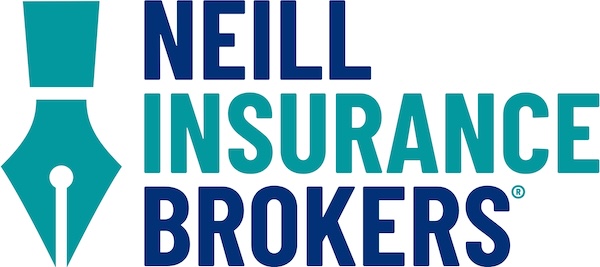
Are you confident your family would remain financially secure if the unexpected happened tomorrow?
Do you know whether your life insurance plan aligns with your long-term wealth goals—or could it be leaving gaps you didn’t realize?
In this guide, you’ll learn exactly how life insurance plays a central role in protecting your family legacy, especially for Roanoke’s affluent households. We’ll walk through the unique considerations of Texas estate law, compare popular policy types, and outline strategic ways to use life insurance as a tool for tax efficiency, wealth transfer, and future planning.
Here’s what we’ll cover:
- How Roanoke’s demographics shape life insurance needs
- Term vs. whole life insurance: which fits your situation?
- Texas-specific legal and tax implications
- Advanced strategies for estate, business, and legacy planning
- Key implementation tips to get the most out of your policy
The Unique Profile of Roanoke Families and Their Life Insurance Needs
Roanoke isn’t just another North Texas suburb—it’s a hub of high-income families with long-term financial visions.
With a population nearing 12,000, a median age of 38.9, and an average household income of $154,033, many families in Roanoke are in their prime earning years with real estate and retirement goals top of mind. These households typically need robust, flexible life insurance plans that go far beyond basic coverage.
Whether you’re raising young children, building a business, or managing a growing estate, your life insurance should align with both present and future financial priorities.
Term vs. Whole Life Insurance: What’s Right for Roanoke Families?
Term Life Insurance: Cost-Effective Coverage When You Need It Most
Term policies are ideal for families with high financial responsibilities today—mortgages, tuition, and income replacement needs. You can lock in high coverage amounts for 10–30 years at affordable rates, often with the option to convert to permanent insurance later.
Example: A 20-year term policy on a breadwinner could cover a $450,000 mortgage, kids’ college funds, and day-to-day living expenses if the unthinkable happens.
Whole Life Insurance: Build Wealth While Protecting It
Whole life insurance combines permanent death benefit coverage with tax-advantaged savings through its cash value. It’s particularly powerful for wealth preservation and long-term estate planning, especially for high-net-worth Roanoke families.
Policyholders can access cash value through loans or withdrawals, making this a dual-purpose tool for both protection and liquidity.
Comparison Snapshot:
| Feature | Term Life Insurance | Whole Life Insurance |
|---|---|---|
| Duration | 10–30 years | Lifetime |
| Cost | Lower | Higher |
| Cash Value | None | Accumulates over time |
| Flexibility | Convertible (with rider) | Borrowable, lifelong use |
| Best For | Growing families, temporary needs | Estate planning, wealth building |
Why Texas Laws Change the Life Insurance Equation
Community Property Rules Impact Ownership and Beneficiaries
In Texas, assets acquired during marriage are community property. That means life insurance purchased with shared income may be considered jointly owned—affecting how proceeds are distributed.
Also, Texas automatically designates spouses as primary beneficiaries unless explicitly changed. Without careful coordination with your estate documents, this could create unintended outcomes.
No State Estate Tax—but Federal Taxes Still Apply
Texas doesn’t impose estate or inheritance taxes, but estates above $13.99 million (per person in 2025) still face federal estate tax. Life insurance offers tax-free liquidity to cover this burden without forcing heirs to sell off properties or business interests.
Avoid Probate Delays with Properly Structured Policies
Life insurance proceeds in Texas bypass probate when beneficiaries are properly named—ensuring your family gets immediate financial support during a difficult time.
Strategic Uses of Life Insurance in Estate and Legacy Planning
Estate Tax Liquidity Without Asset Fire Sales
High-net-worth families in Roanoke can use Irrevocable Life Insurance Trusts (ILITs) to remove policies from their taxable estate. This strategy ensures beneficiaries receive tax-free death benefits, preserving the full value of other estate assets.
Business Succession Without Drama
If you’re a business owner, a buy-sell agreement funded with life insurance can guarantee a smooth ownership transition. Surviving partners get the capital to buy out shares, while your family gets fair compensation.
Inheritance Equalization Among Heirs
Have one child taking over the business and others not involved? Use life insurance to balance the scales—leaving the business to one heir, and equivalent policy proceeds to the others.
Generation-Skipping Wealth Transfer
By pairing life insurance with a generation-skipping trust, Roanoke families can pass wealth down two generations while minimizing estate tax. Grandparents fund policies that pay out to grandchildren—tax-efficient and legacy-driven.
Special Needs Planning Without Jeopardizing Benefits
Parents of special needs children can use second-to-die life insurance within a special needs trust to ensure lifelong support—without disqualifying the child from Medicaid or SSI.
Enhance Charitable Giving While Protecting Heirs
You can name charities as life insurance beneficiaries or gift a policy to a nonprofit. Simultaneously, buy a replacement policy for heirs—maximizing both impact and family wealth preservation.
Key Steps to Make Life Insurance Work for You
1. Build a Team of Experts
Work with estate planning attorneys, financial advisors, and tax professionals who understand Texas laws and Roanoke’s economic realities.
2. Review and Update Policies Regularly
Life changes—so should your policy. Major events like marriage, births, or business changes should prompt immediate reviews.
3. Get Beneficiaries Right
Name both primary and contingent beneficiaries. Use full legal names and relationship descriptors to avoid disputes and delays.
At the end of the day, you’re not just buying a policy—you’re building a legacy plan. Roanoke families face unique opportunities to grow and protect wealth through life insurance, thanks to high incomes, valuable property, and business assets.
Now that you understand how life insurance fits into the broader context of estate and legacy planning in Texas, you’re empowered to make informed decisions that protect your family’s future.
Your next step? Start by reviewing your current policy or exploring whether term or whole life insurance better fits your goals. Then, consult with a qualified advisor to build a customized life insurance strategy that aligns with your financial vision.

